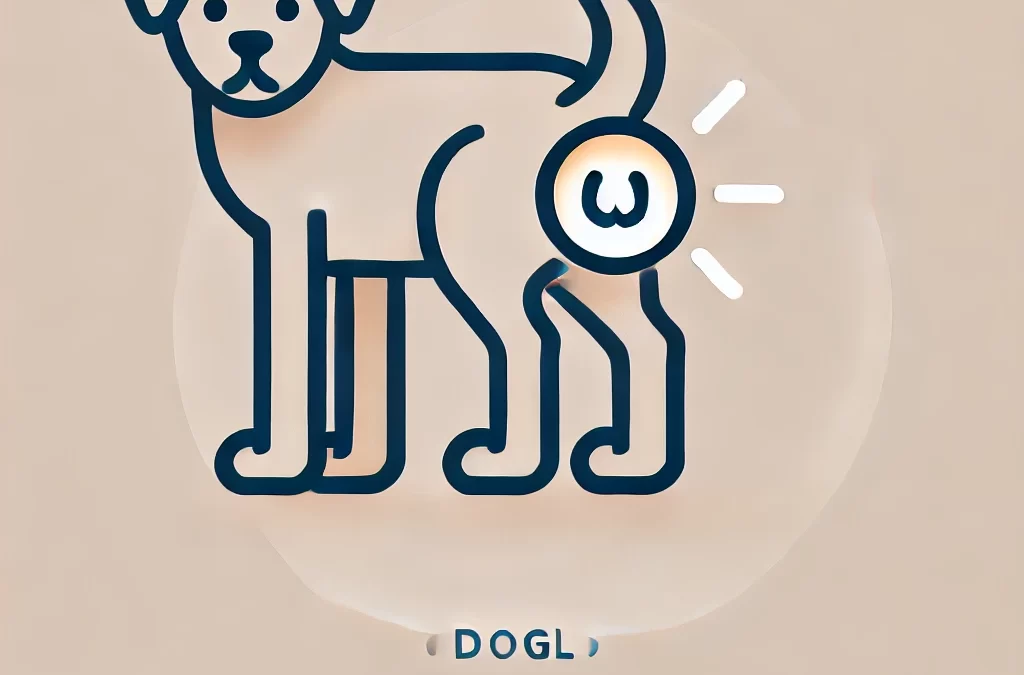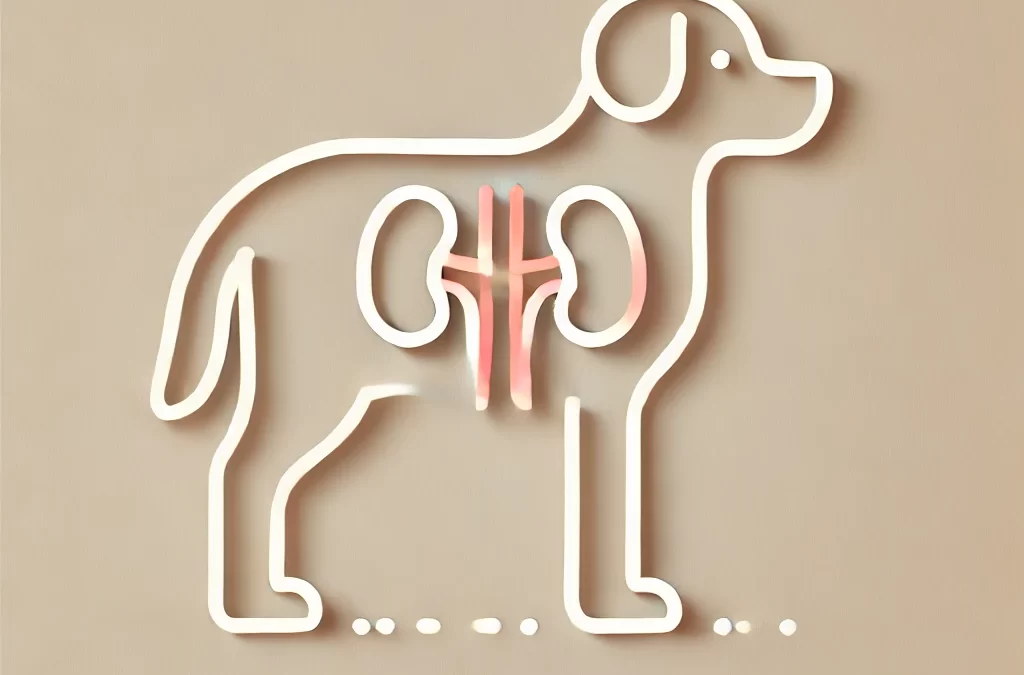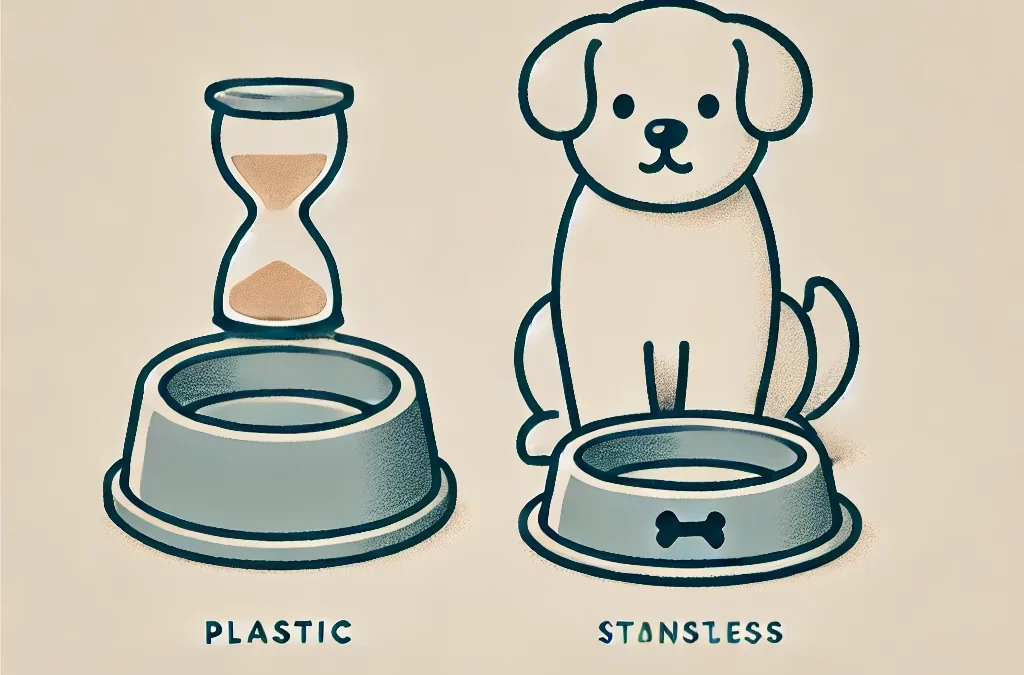
執筆者 TCMVET | 2024年12月13日 | 犬の癌と腫瘍
犬の鼻がんは鼻がんとも呼ばれ、比較的まれですが、鼻腔または副鼻腔に影響を与える悪性の病気です。犬のがん全体の 1% 未満を占めるに過ぎませんが、その重症度は侵襲性があり、早期発見が難しいことにあります。この記事では、鼻がんと闘う犬の症状、診断、治療オプション、サポートケアについて詳しく説明します。
犬の鼻がんとは何ですか?
犬の鼻がんは主に鼻腔または副鼻腔内に発生する腫瘍です。最も一般的なタイプは 腺癌ただし、扁平上皮癌、線維肉腫、骨肉腫などの他の形態が発生することもあります。この病気は、通常、高齢の犬に発生し、大型犬ではリスクが若干高いようです。
兆候と症状
鼻がんの初期症状はわかりにくく、呼吸器感染症やアレルギーと間違われることがよくあります。病気が進行するにつれて、症状はより顕著になります。次の点に注意してください。
- 持続的な鼻水
片側の鼻水(片方の鼻孔に影響)が血性または粘液性であることが特徴的な症状です。
- 頻繁なくしゃみ
治療しても改善しない慢性のくしゃみは、腫瘍による鼻の炎症を示している可能性があります。
- 顔の腫れ
腫瘍が周囲の組織に侵入すると、鼻、目、額の周囲に腫れが生じることがあります。
- 呼吸困難
いびきや大きな呼吸音は、鼻腔の閉塞を示している可能性があります。
- 鼻血(鼻出血)
断続的または持続的な鼻からの出血がしばしば報告されます。
- 神経症状
腫瘍が脳に広がると、発作、見当識障害、行動の変化などの症状が現れることがあります。
- 食欲不振と体重減少
多くの癌と同様に、全身的な影響により食物摂取量の減少や体重減少が起こる可能性があります。
診断
鼻がんの診断には、次のような徹底的な評価が必要です。
- 身体検査獣医師は顔の非対称性や呼吸時の異常な音がないか確認することがあります。
- 鼻鏡検査鼻腔に挿入された小型カメラにより腫瘍を視覚化できます。
- イメージングX 線、CT スキャン、または MRI により、腫瘍とその広がりの詳細な画像が得られます。
- 生検組織サンプルによりがんの種類と重症度を確認します。
治療の選択肢
治療法は、腫瘍の大きさ、種類、進行度、および犬の全体的な健康状態によって異なります。選択肢には次のものがあります。
- 放射線治療
放射線治療は、腫瘍を縮小し、症状を緩和することを目的としており、鼻がんに対する最も効果的な治療法です。がんを治癒することはできませんが、生活の質を大幅に改善することができます。
- 手術
鼻領域の複雑な構造のため、腫瘍の外科的切除は困難ですが、特定のケースでは試みられることがあります。
- 化学療法
化学療法はあまり一般的に使用されていませんが、特定の腫瘍の種類に対して、または他の治療法の補助として推奨される場合があります。
- 緩和ケア
治癒的治療が選択肢にない場合、緩和ケアは抗炎症薬、鎮痛剤、鼻づまり除去薬などの薬物による痛みや不快感の緩和に重点を置きます。
支持療法のための自然療法
従来の治療法に加えてホリスティックなアプローチを取り入れることで、犬の快適性を高めることができます。
- ハーブサプリメント
ハーブ類 ターメリック (クルクミン)と レンゲ 抗炎症作用と免疫力を高める作用があると考えられています。
- 食事の調整
高品質で低炭水化物の食事は、全体的な健康をサポートし、炎症を軽減します。
- CBDオイル
カンナビジオールは、進行癌を患った犬の痛みを管理し、不安を軽減するのに役立つ可能性があります。
予後と生活の質
犬の鼻がんの予後は、腫瘍の種類や診断時のステージなどの要因によって異なります。放射線療法により、多くの犬で症状が緩和し、生存期間が延長します。生存期間は 8 ~ 18 か月に及ぶ場合が多いです。治療を行わない場合、病気は急速に進行し、数週間から数か月以内に進行することがよくあります。
愛犬をサポートする方法
- 症状を監視する: 呼吸、食事、エネルギーレベルの変化を追跡します。
- 頻繁な獣医の診察: 定期的な検査により、犬の状態を注意深く監視できます。
- 快適さを提供する柔らかい寝具、静かな環境、食べ物や水への容易なアクセスは大きな違いを生みます。
最終的な考え
犬の鼻がんは診断が難しい病気ですが、適切なタイミングで介入し、総合的な治療計画を立てることで、愛犬に可能な限り最高の生活の質を与えることができます。必ず獣医師に相談し、愛犬の特定のニーズに合わせた治療オプションを検討してください。

執筆者 TCMVET | 2024年12月13日 | 犬の癌と腫瘍
犬の腎臓がんはまれではありますが、あなたの愛犬の生活の質に重大な影響を与える深刻な病気です。兆候を早期に認識することで、治療結果に大きな違いが生まれます。この記事では、腎臓がんの明らかな兆候を探り、なぜ気づかれないことが多いのかを説明し、支持療法の選択肢についての洞察を提供します。
犬の腎臓がんとは何ですか?
腎臓がんとは、片方または両方の腎臓における異常な細胞増殖を指します。犬の場合、腎細胞がんは最も一般的なタイプの腎臓がんであり、主に高齢の犬に発症します。その正確な原因は不明ですが、遺伝的素因や毒素への曝露が関与している可能性があります。
微妙な兆候:腎臓がんが目に見えないことが多い理由
腎臓がんの症状は、尿路感染症や一般的な老化などのそれほど深刻ではない問題と間違えられやすいです。症状が重なると、診断が遅れることがよくあります。注意すべき点は次のとおりです。
- 頻尿または排尿困難
排尿頻度の増加や排尿時の明らかな不快感は、腫瘍による腎臓へのストレスまたは閉塞を示している可能性があります。
- 尿に血が混じる(血尿)
鮮やかな赤色または暗褐色の尿は、犬の腎臓に何らかの異常があるかもしれないという重要な警告サインです。
- 食欲減少
突然の食欲不振と体重減少は、腎機能に関連した全身的な問題の兆候である可能性があります。
- 無気力
犬が異常に疲れているように見えたり、日常の活動に参加したがらない場合、腎機能障害による根本的な疲労を示している可能性があります。
- Abdominal Swelling
腹部の腫れは、大きな腎臓腫瘍が他の臓器を圧迫することによって起こる可能性があります。
- 嘔吐と吐き気
腎臓がんが進行するにつれて、血液中に毒素が蓄積し、胃腸障害を引き起こします。
腎臓がんは他の病気とどう違うのか
上記の症状の多くは、腎臓病、膀胱感染症、さらには糖尿病の症状に似ています。しかし、腎臓がんの場合、これらの兆候はより持続的で、治療しないと時間の経過とともに悪化します。
診断の役割
腎臓がんの検出には、次のような複数の検査を組み合わせる必要があります。
- 超音波とX線検査により、潜在的な腫瘍の画像が得られます。
- 血液検査により腎機能の異常または貧血が明らかになります。
- 尿検査では、顕微鏡レベルの血液や癌細胞を特定することができます。
獣医師は、がんの種類と重症度を確認するために生検を勧めることもあります。
支持療法のための自然療法
影響を受けた腎臓を外科的に除去することが主な治療法となることが多いですが、ホリスティックなアプローチは従来の治療法を補完し、犬の生活の質を向上させることができます。
- ハーブ療法
チュアンシオン(四川ラビジン)などのハーブは、血液循環を促進し、腎臓の周りの炎症を軽減するのに役立つ可能性があります。
- 食事の調整
低リン、高品質タンパク質の食事は腎臓機能をサポートし、残った腎臓の負担を軽減します。
- CBDオイル
カンナビジオールは、治療を受けている犬の痛みを管理し、ストレスを軽減するのに役立つ可能性があります。
予防のヒント: リスクを軽減できますか?
腎臓がんを完全に予防することは不可能ですが、腎臓全体の健康を促進するために実行できる手順はあります。
- 新鮮なろ過水を用意してください。
- 農薬などの既知の発がん物質への曝露を避けてください。
- 特に高齢犬の場合は、定期的に獣医による検診を受けるようにしてください。
獣医師の受診時期
上記の症状に気付いた場合は、すぐに獣医師に相談してください。手術、化学療法、緩和ケアなど、早期に介入することで、より良い結果が得られる可能性があります。
最終的な考え
犬の腎臓がんは診断が難しい病気ですが、犬の健康に積極的に取り組むことで大きな違いが生まれます。微妙な変化に気づき、適切なタイミングで医師のアドバイスを求めることで、愛するペットが適切なケアと快適さを受けられるようになります。

執筆者 TCMVET | 2024年12月12日 | 犬の癌と腫瘍
犬の肛門がんは比較的まれですが、早急な治療が必要な深刻な病気です。最も頻繁に診断されるタイプは 肛門嚢腺癌肛門腺から発生する悪性腫瘍です。このタイプの癌は、その攻撃的な性質と体の他の部分に広がる可能性があることで知られています。この記事では、肛門癌に罹患した犬の症状、診断、治療の選択肢、および見通しについて説明します。
犬の肛門がんとは何ですか?
肛門がんは、肛門腺の中または近くに悪性腫瘍が発生することを指します。肛門の両側にあるこれらの腺は、縄張りを示すために使用する液体を分泌する役割を果たします。これらの腺にがんが発生すると、急速に増殖し、近くのリンパ節、肺、または他の臓器に転移することがあります。
犬の肛門がんの症状
犬の肛門がんの症状は、腫瘍の大きさや場所、転移の有無によって異なります。一般的な兆候は次のとおりです。
- しこりや腫れ: 肛門付近の目立つ腫瘤または腫れ。
- 排便困難: 腫瘍が直腸を塞ぐことによる、いきみ、痛み、または便の形状の変化。
- 出血: 肛門の周囲または便に血が混じる。
- すべったり舐めたり: 犬は不快感から地面を這ったり、その部分を過度に舐めたりすることがあります。
- 高カルシウム血症の症状: 血液中のカルシウム濃度の上昇により、喉の渇き、頻尿、無気力、または衰弱が起こります。
- 体重減少と食欲不振: 症状が進行すると、体重減少や食欲減退などの全身症状が現れる場合があります。
肛門がんはどのように診断されるのでしょうか?
肛門がんを診断するために、獣医師は以下の検査を組み合わせて行います。
- 身体検査: 肛門周辺のしこり、腫れ、不快感の有無を確認します。
- 穿刺吸引または生検: 腫瘍組織を採取して悪性度を確認します。
- 血液検査: 高カルシウム血症またはその他の異常を特定する。
- イメージング: X 線、超音波、または CT スキャンにより、がんの範囲を判断し、転移の有無を確認します。
犬の肛門がんの治療法
治療方法はがんの進行度と広がりに応じて異なります。一般的な選択肢は次のとおりです。
- 手術だ: 局所性肛門がんの主な治療法は、腫瘍と影響を受ける可能性のあるリンパ節を外科的に切除することです。
- 放射線療法: 残存癌細胞を標的とする手術と組み合わせて使用されることが多い。
- 化学療法: がんが転移した場合や、他の治療の補助として推奨されます。
- 緩和ケア: 症状が進行した場合は、疼痛管理、食事の調整、支持療法によって生活の質を向上させることができます。
肛門がんを患った犬の予後
肛門がんを患った犬の予後は、腫瘍の大きさ、転移の有無、治療内容など、いくつかの要因によって決まります。早期発見と積極的な治療により生存率が向上し、多くの犬が治療後も長期間にわたり良好な生活の質を維持しています。ただし、転移を伴う進行した症例では予後はあまり良くありません。
肛門がんを患った犬のケア
ペットの飼い主として、愛犬にとって快適でサポート力のある環境を提供することは不可欠です。以下のヒントに従ってください。
- 定期的な獣医の診察: 犬の状態を監視するために、頻繁に健康診断をスケジュールしてください。
- Nutrition: 治療中は犬のニーズに合わせたバランスの取れた食事を与えてください。
- 疼痛管理: 獣医と協力して犬が快適に過ごせるようにしてください。
- 心の支え: 犬が治療のストレスに対処できるように、愛情と安心感を与えてください。
結論
犬の肛門がんは進行が早いですが、早期発見と包括的な治療計画により、結果に大きな違いが生まれます。症状に注意し、異常な兆候に気づいたらすぐに獣医の診察を受けてください。適切なサポートとケアがあれば、困難な時期でも犬は良好な生活の質を維持できます。

執筆者 TCMVET | 2024年12月12日 | 犬の癌と腫瘍
犬の腎臓がんは比較的まれですが、発症すると犬の健康に重大な影響を及ぼす可能性があります。症状は徐々に現れることが多く、早期発見は困難です。潜在的な兆候を認識しておくことで、飼い主は適切なタイミングで獣医の診察を受けることができます。
犬の腎臓がんの一般的な症状
- 喉の渇きと排尿の増加(多飲と多尿):
- 過度の飲酒や排尿は、腫瘍による腎機能障害を示している可能性があります。
- Loss of Appetite:
- 腎臓がんを患った犬は食欲が減退し、体重が減少することがよくあります。
- Weight Loss:
- 通常の食事摂取であっても、体が病気と闘うためにエネルギーを消費するため、体重が減少することがあります。
- 嘔吐と吐き気:
- がんによる腎機能障害により、血液中に毒素が蓄積し、胃腸障害を引き起こす可能性があります。
- 腹痛または腫れ:
- 腫瘍により、目に見える腫れが生じたり、腹部に触れたときに不快感が生じたりすることがあります。
- 尿に血が混じる(血尿):
- 腫瘍からの出血により尿がピンク色または赤色になることがあります。
- Lethargy:
- 腎臓がんを患った犬は、エネルギーレベルが低下し、通常の活動に参加することを嫌がることがあります。
- Difficulty Breathing:
- 進行すると、腫瘍が周囲の臓器を圧迫し、呼吸器系の問題を引き起こす可能性があります。
- 淡いガム:
- 腎臓がんによく伴う貧血により、歯茎が青白く見えることがあります。
- 口臭(尿毒症性口臭):
- 腎機能の低下により血液中に毒素が蓄積すると、アンモニアのような臭いが発生することがあります。
獣医師の受診時期
愛犬がこれらの症状を複数呈している場合は、すぐに獣医の診察を受ける必要があります。これらの兆候は腎臓がんに限ったものではありませんが、診断と治療を必要とする深刻な健康問題が潜んでいることを示している場合が多くあります。
犬の腎臓がんの診断
獣医師は通常、腎臓がんを確認するために以下の方法を使用します。
- 身体検査: 腫れや不快感を検出するため。
- 尿検査: 尿の中に血液や異常物質がないか調べます。
- 血液検査: 腎機能を評価し、異常を検出します。
- イメージング: 超音波、X 線、または CT スキャンにより、腫瘍とその範囲を特定できます。
- 生検: 腫瘍の性質を確認するために腫瘍のサンプルを採取することがあります。
治療と予後
治療の選択肢は腫瘍の種類と進行度によって異なりますが、次のようなものがあります。
- 手術だ: がんが局所的である場合は、影響を受けた腎臓を切除します(腎摘出術)。
- 化学療法: 特定の種類の癌の場合、化学療法によって進行が遅くなる可能性があります。
- 支持療法: 生活の質を維持するための疼痛管理、水分補給、栄養サポート。
早期発見により治療結果が改善されるため、特に高齢の犬の場合は定期的な獣医による検診が不可欠です。
これらの症状を認識し、迅速に行動することで、愛犬が効果的なケアを受け、良好な生活の質を維持できる可能性が高まります。

執筆者 TCMVET | 2024年12月11日 | 犬の癌と腫瘍
プラスチックは、食品容器から家庭用品、さらにはペット用の製品に至るまで、私たちの日常生活のいたるところに存在しています。しかし、一見無害に見えるこの素材が、犬の健康に脅威を与える可能性はあるのでしょうか? 最新の研究では、特定の種類のプラスチックに長時間さらされると、犬のがんリスクが高まる可能性があることが示唆されています。科学的な根拠と、ペットの飼い主がペットを守るためにできることを探ってみましょう。
プラスチックの隠れた危険性
多くの種類のプラスチックには、ビスフェノール A (BPA)、フタル酸エステル、ポリ塩化ビニル (PVC) などの有害な化学物質が含まれています。これらの化学物質は、プラスチックの耐久性、柔軟性、透明性を高めるためによく使用されます。ただし、プラスチックが加熱されたり、傷がついたり、劣化したりすると、食品、水、さらには環境に浸出する可能性があります。
動物の場合、これらの化学物質は内分泌かく乱物質として作用し、ホルモンの働きを阻害します。長期間の曝露は細胞の変化、酸化ストレス、さらには腫瘍形成を引き起こし、がんの可能性を高めます。犬は日常的に噛んだり、なめたり、さまざまな物質に密着したりすることが多いため、リスクはさらに高まります。
犬が日常的にプラスチックにさらされる原因
- フードボウルとウォーターボウル多くの犬の飼い主は、知らないうちにプラスチック製のボウルを使用していますが、特に傷が付いたり日光にさらされたりすると、有害物質が放出される可能性があります。
- 噛むおもちゃ: 低品質のプラスチック製玩具には、摂取したり、大量に噛んだりすると危険を及ぼす可能性のある、規制されていない材料が含まれていることがよくあります。
- パッケージ: 犬のおやつ、ドッグフード、その他の製品はプラスチックの包装で保管されることが多く、化学物質が食品に浸出する可能性があります。
- 家庭用品犬は容器から家具まで、家の周りのプラスチック製品に頻繁に接触します。
プラスチックに関連するがんリスク
プラスチックへの曝露と犬のがんとの直接的な関係はまだ研究中ですが、人間と動物の研究から、懸念すべき関係が示されています。犬の場合、乳腺腫瘍、精巣がん、リンパ腫などのがんは、プラスチックに含まれるものを含む環境毒素の影響を受ける可能性があります。小型犬や既存の健康状態を持つ犬は特に影響を受けやすい可能性があります。
プラスチックへの曝露を減らすための手順
ペットの飼い主は、犬が有害なプラスチックにさらされるのを最小限に抑えるために、積極的な対策を講じることができます。
- より安全なボウルに切り替える: 食べ物や水を入れるボウルには、プラスチック製のものではなく、ステンレス製、セラミック製、またはガラス製のボウルを使用してください。
- 高品質のおもちゃを選ぶ: 毒性のない、BPA を含まないおもちゃ、またはゴムなどの天然素材で作られたおもちゃを選びましょう。
- ストレージを再考する: ドッグフードやおやつは、元のプラスチック包装のままにせず、ガラスまたはステンレス製の密閉容器に保管してください。
- 家を点検する噛んだり飲み込んだりする可能性のある低品質のプラスチック製品への犬のアクセスを制限します。
- プラスチックの加熱を避ける: 熱によって化学物質の浸出が増加するため、プラスチック容器に入った食品やおやつを電子レンジで加熱しないでください。
より安全な基準の推進
ペットの飼い主は、個人的な選択を超えて、ペット用品業界の安全基準の向上を訴えることができます。無毒の素材と持続可能な方法を優先するブランドを支援することは、強力なメッセージとなります。さらに、製品のリコールや最新の研究について情報を得ることは、隠れたリスクから愛犬を守るのに役立ちます。
全体像
プラスチックは現代生活のいたるところに存在していますが、その健康への影響は無視できません。犬にとって、有害なプラスチックへの曝露を減らすことは、長期的な健康と幸福をサポートするシンプルかつ効果的な方法です。意識的な選択を行い、認識を広めることで、ペットがより幸せで健康的な生活を送れるようにすることができます。

執筆者 TCMVET | 2024年12月11日 | 犬の癌と腫瘍
犬に関して言えば、サイズは重要ですが、私たちが通常考える意味だけではありません。大型犬は力強さで、小型犬は愛嬌で称賛されていますが、最近の研究では、犬のサイズとがん発症リスクの間に意外な関係があることが明らかになりました。この興味深い関係を詳しく調べ、ペットの飼い主にとってそれが何を意味するのかを探ってみましょう。
体の大きさとがんリスクの科学的根拠
研究によると、グレートデーン、バーニーズマウンテンドッグ、ロットワイラーなどの大型犬は、小型犬に比べて特定のがんにかかりやすいことがわかっています。しかし、なぜでしょうか? その答えは生物学にあります。大型犬は成長が早く、体内の細胞数が多いためです。この細胞活動の増加により突然変異の可能性が高まり、がんにつながる可能性があります。
一方、チワワやダックスフントなどの小型犬は、がんリスクが低い傾向にありますが、完全に免れるわけではありません。肥満細胞腫などの特定のがんは、体の大きさではなく遺伝的素因によって、小型犬にも発症する可能性があります。
急成長:諸刃の剣
大型犬は子犬の頃に急激な成長期を迎え、体に多大な負担がかかります。この急速な成長により細胞分裂が不安定になり、時間の経過とともに異常な細胞行動のリスクが高まります。さらに、大型犬の代謝要求により老化が早まり、年を取るにつれて癌などの病気にかかりやすくなります。
寿命とがんリスク
小型犬は大型犬よりもかなり長生きすることが多い。寿命が長いため、小型犬は加齢に伴う病気を発症する時間が長くなるが、成長と細胞のターンオーバーが遅いため、大型犬によく見られる早期発症のがんから守られる可能性もある。対照的に、大型犬の寿命が短いことは、若い年齢での悪性がんの罹患率が高いことと相関関係にあることが多い。
ペットの飼い主ができることは
ペットの飼い主は、犬のサイズに関係なく、がんリスクを最小限に抑えるために積極的な対策を講じることができます。定期的な獣医による検診、バランスの取れた食事、適切な運動習慣は不可欠です。大型犬の場合、肥満ががんリスクをさらに悪化させる可能性があるため、健康的な体重を維持することに特に注意する必要があります。小型犬は、サイズに関連したがんになりにくいものの、遺伝的リスクを早期に特定するための遺伝子検査を受けることは有益です。
「サイズは重要」を再定義する
体の大きさとがんリスクの関連性は、犬のケアに対するアプローチを再考するよう私たちに迫っています。犬の体の大きさを変えることはできませんが、それが犬の健康にどのような影響を与えるかを理解すれば、情報に基づいた決定を下すことができます。犬種の選択からケアのルーチンの調整まで、この知識があれば、ペットの飼い主は愛犬に長く健康的な生活を送るチャンスを最大限に与えることができます。
結局のところ、大型犬でも小型犬でも、すべての犬は愛情と配慮、そして積極的な健康管理を受けるに値します。情報を得ることで、私たち全員が癌のリスクを減らし、愛犬の健康を守る役割を果たすことができます。






